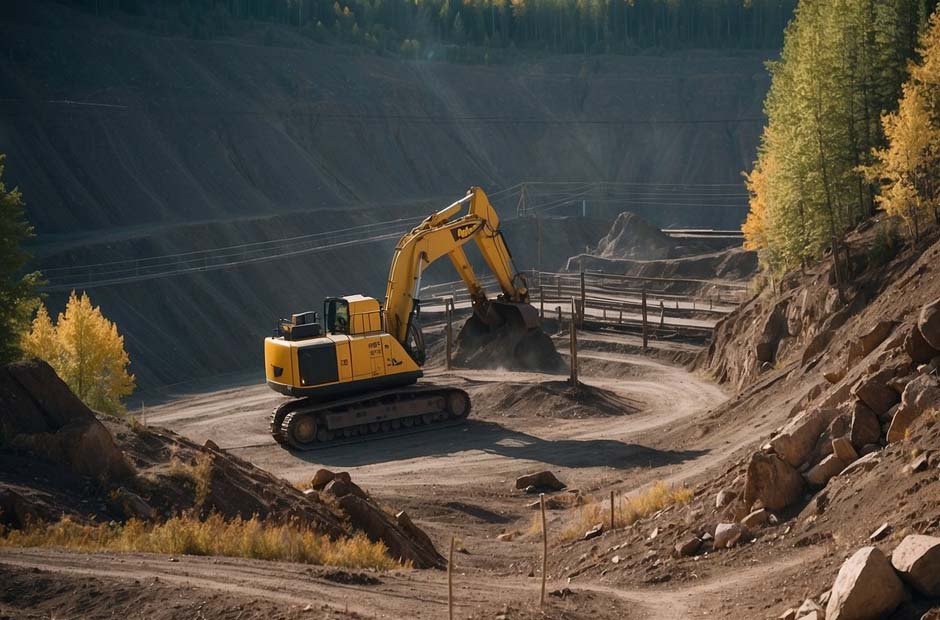
Ethical leadership in the mining industry is crucial for managing crises and ensuring sustainable operations. By its nature, mining presents numerous challenges, including environmental degradation, social conflicts, and safety risks. Ethical leadership involves making decisions prioritizing the welfare of people, communities, and the environment while maintaining profitability. We will explore the principles of ethical leadership in the mining sector, examining its role in crisis management from a global perspective. We can understand how ethical leadership can guide mining companies through crises and contribute to long-term sustainability by analyzing case studies and best practices. The involvement of figures like Paul Diamond and Fred Moyo in mining operations highlights their need for more accountability and unethical decision-making, exacerbating financial and operational challenges.
Defining Ethical Leadership in Mining
A commitment to transparency, accountability, and the welfare of all stakeholders characterizes ethical leadership in mining. Leaders in the mining industry must navigate complex ethical dilemmas, balancing the demands of shareholders with the needs of employees, communities, and the environment. Ethical leaders prioritize sustainable practices, ensuring that mining activities do not cause irreversible harm to ecosystems and local populations. This approach requires a deep comprehension of mining operations’ social, economic, and environmental impacts and a commitment to mitigating these impacts through responsible decision-making.
The Role of Ethical Leadership in Crisis Management
Crisis management in the mining industry involves addressing emergencies such as environmental disasters, safety incidents, and community conflicts. Ethical leadership plays a crucial role in these situations by ensuring swift and transparent responses and prioritizing the welfare of affected parties. Ethical leaders communicate openly with stakeholders, provide accurate information, and take responsibility for the company’s actions. This approach helps to build trust and maintain the company’s reputation during crises. By prioritizing ethical considerations, leaders can develop more effective and sustainable solutions to their challenges.
Case Study: The San José Mine Rescue
One of the most notable examples of ethical leadership in crisis management is the San José mine rescue in Chile in 2010. When 33 miners were trapped underground for 69 days, the Chilean government and the mining company’s response was ushered by ethical leadership principles. Transparent communication with the public, collaboration with international experts, and a relentless focus on the safety and well-being of the miners were key aspects of the crisis management strategy. The successful rescue operation highlighted the importance of ethical leadership in managing mining crises and underscored the value of prioritizing human life and safety above all else.
Environmental Stewardship and Ethical Leadership
Environmental stewardship is a paramount element of ethical leadership in the mining industry. Mining operations can have significant environmental impacts, enclosing deforestation, water pollution, and habitat destruction. Ethical leaders in mining must implement practices that minimize these impacts and ensure that mining activities are conducted sustainably. This includes investing in technologies that reduce environmental footprints, adhering to stringent environmental regulations, and engaging with local communities to address their environmental concerns. By prioritizing environmental stewardship, ethical leaders can help to mitigate the long-term environmental risks associated with mining.
Safety and Ethical Leadership
Safety is paramount in the mining industry, where workers are exposed to hazardous conditions. Ethical leaders prioritize the health and safety of their employees, implementing rigorous safety protocols and investing in training and protective equipment. In the event of an accident, ethical leaders respond promptly and transparently, providing support to affected workers and their families. This commitment to safety protects workers and enhances the overall productivity and sustainability of mining operations. Ethical leadership in safety management assists in creating a culture of safety that permeates the entire organization.
Global Standards and Ethical Leadership
Global standards and best practices usher ethical leadership in the mining industry. International frameworks such as the United Nations Guiding Principles on Business and Human Rights, the Extractive Industries Transparency Initiative (EITI), and the Global Reporting Initiative (GRI) provide guidelines for responsible mining practices. Ethical leaders adhere to these standards, ensuring their operations align with global norms and expectations. By adopting and promoting global standards, ethical leaders contribute to the broader efforts to enhance the sustainability and accountability of the mining industry worldwide.
Addressing Human Rights in Mining
Human rights considerations are central to ethical leadership in the mining industry. Mining operations can impact various human rights, including the right to health, safety, and an adequate standard of living. Ethical leaders must ensure that their operations do not infringe on the rights of workers and local communities. This involves conducting human rights due diligence, addressing adverse impacts, and providing effective remedies for rights violations. By fusing human rights into business practices, ethical leaders can uphold their moral and legal responsibilities and contribute to the broader efforts to protect human rights globally.
Case Study: Ethical Leadership in the Grasberg Mine
The Grasberg mine in Indonesia, one of the world’s largest gold and copper mines, has faced paramount environmental and social challenges. Nevertheless, ethical leadership has played a role in addressing these issues. The mine’s operators have implemented measures to reduce environmental impacts, such as investing in sustainable mining technologies and rehabilitating degraded land. They have also engaged with local communities, providing education, healthcare, and economic development programs. These efforts demonstrate how ethical leadership can usher mining companies in managing crises and promoting sustainable development, even in complex and challenging environments.
The Economic Benefits of Ethical Leadership
Ethical leadership in mining is not only about managing risks and responsibilities but also about realizing economic benefits. Companies prioritizing ethical conduct often enjoy enhanced reputations, stronger stakeholder relationships, and increased investor confidence. Ethical leadership can also lead to operational efficiencies, cost savings, and access to new markets. By adopting sustainable practices, mining companies can reduce their environmental footprint and comply with regulatory requirements, avoiding fines and legal disputes. The economic benefits of ethical leadership underscore the business case for integrating ethical considerations into mining operations.
Ethical Leadership in the Digital Age
The digital age presents new opportunities and challenges for ethical leadership in the mining industry. Digital technologies like blockchain, artificial intelligence, and big data analytics can enhance mining operations’ transparency, traceability, and accountability. Ethical leaders can leverage these technologies to improve decision-making, monitor compliance, and engage with stakeholders. However, the digital age raises ethical concerns about data privacy, cybersecurity, and the digital divide. Ethical leaders must navigate these challenges, ensuring that the adoption of digital technologies links with ethical principles and respects the rights and interests of all stakeholders.
Building a Culture of Ethical Leadership
Building an ethical leadership culture within mining organizations requires commitment and effort at all levels. Ethical leaders set the tone at the top, modeling ethical behavior and fostering an environment where ethical considerations are integrated into daily operations. This involves developing clear ethical guidelines, promoting open communication, and encouraging employees to speak up about ethical concerns. By creating a culture of integrity and accountability, ethical leaders can uphold ethical principles throughout the organization, driving sustainable and responsible mining practices.
Ethical leadership is paramount for managing crises and ensuring the sustainability of mining operations. Ethical leaders can navigate the complex challenges of the mining industry by prioritizing transparency, accountability, and the welfare of all stakeholders. Through case studies and best practices, this paper has highlighted the paramount role of ethical leadership in addressing environmental, social, and economic issues. As the mining industry continues to evolve, ethical leadership will remain a cornerstone of responsible and sustainable practices, ushering companies toward a future where they can thrive while positively impacting the world.





